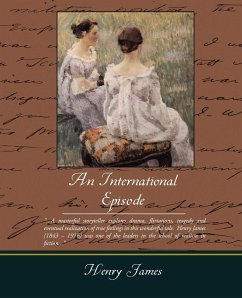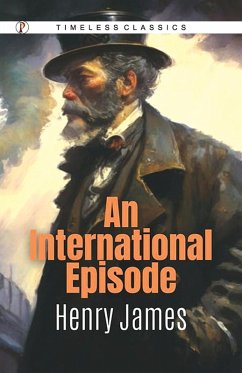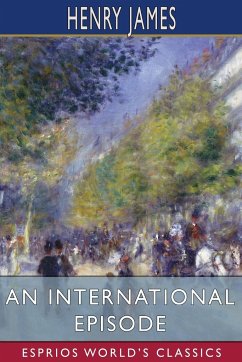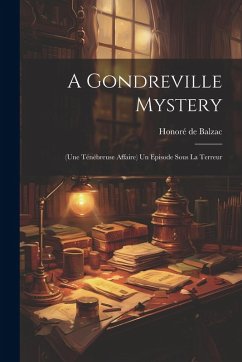
An International Episode
Versandkostenfrei!
Versandfertig in 1-2 Wochen
13,99 €
inkl. MwSt.

PAYBACK Punkte
7 °P sammeln!
A masterful storyteller explores drama, flirtations, tragedy and eventual realization of true feelings in this wonderful tale. Henry James (1843 ¿ 1916) was one of the leaders in the school of realism in fiction. He is known for his series of novels in which he portrayed the encounter of America with Europe. James is considered to be the master of the novel and novella. James wrote about personal relationships and the power within these relationships. James explored consciousness and perception from the point of view of a character within a tale. In An International Episode a romance ensues a...
A masterful storyteller explores drama, flirtations, tragedy and eventual realization of true feelings in this wonderful tale. Henry James (1843 ¿ 1916) was one of the leaders in the school of realism in fiction. He is known for his series of novels in which he portrayed the encounter of America with Europe. James is considered to be the master of the novel and novella. James wrote about personal relationships and the power within these relationships. James explored consciousness and perception from the point of view of a character within a tale. In An International Episode a romance ensues across international borders. The story is fast paced and full of humorous episodes. Englishmen Lord Lambeth and Percy Beaumont are well received during their visit to Newport. There are surprising developments when Mrs. Westgate and her sister, Bessie Alden, pay a return visit.












